Speaking out: The women who made their voices heard in 2017
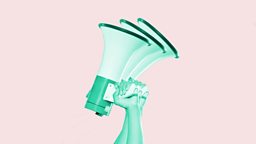
There’s no denying many women found their voice in 2017, from the hundreds of thousands around the world who took part in Women’s Marches following President Trump’s inauguration, to those sharing their stories using the #MeToo hashtag. Here are some of the amazing women who stood up and spoke out on Woman’s Hour this year…
Adwoa Aboah
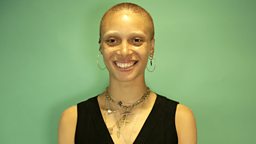
Not content with gracing the cover of British Vogue in 2017, fashion model Adwoa also spoke publicly about the mental health problems she’d experienced since her teens and hosted the first festival from Gurl’s Talk, the online platform she launched for young women.
“I’ve just created something that I always wanted at school,” she told Woman’s Hour in June.
“I didn’t have anyone to talk to, I’d never been educated about mental health and there wasn’t a safe space where we could discuss this. I was confused, I had no idea why I felt so sad all the time. [When] I walked into a women’s meeting [at rehab] and shared for the first time and had other women share back with me, I felt like I wasn’t alone anymore.
“We have girls writing to us from Canada, New Zealand, Asia - and it’s only because of social media that that community is becoming bigger. Because it is for all girls. I’ve spoken at schools in LA and schools in the countryside in Wales and it’s always the same issues; my parents have broken up, I feel alone, I take too many drugs, I don’t fit in. Different backgrounds but at the end of it, we’re all just women and girls.”
Gina Martin
Gina Martin’s 2017 changed course when a man took a photo up her skirt, without her permission, at a summer musical festival. After discovering ‘upskirting’ is not a crime, Gina’s now campaigning to change the law. She told Woman’s Hour how a group of guys had been standing close to her and her sister.
“One of them was on his phone and he'd been sent a picture on Whatsapp of between a girl’s legs. I just knew it was me because of how they were acting, so I grabbed the phone. I just got really angry. 'Ugh, that's a picture up my skirt, how disgusting!' He was screaming at me that it wasn’t and we got into a bit of a scuffle… some guys held him back, and I ran to security.
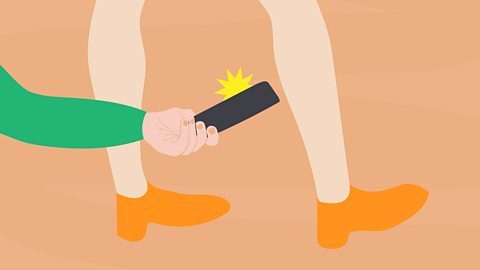
Is 'upskirting' illegal?
We look at the increase of upskirt photography without consent.
“The police were amazing. The policeman said they get it a lot on public transport and in festivals. He said the pictures ‘show more than you'd like them to show, but they're not graphic, so there's not much I can do. If I'm honest, you probably won't hear much from us.’ [He meant] because my genitals weren't exposed, because I had knickers on basically… but I don't see how what I'm wearing should impact the response.
“It's quite a grey area, ‘upskirting’, so I’m hoping to raise awareness and get the laws codified so that this will be under the sexual offences act. I think if it was specifically listed it would be very clear - sexual offence, right, you can charge [them]. I want those men to be prosecuted, because it’s a horrible thing to happen and it happens way too often, but there's a bigger fight to fight.”
Leomie Anderson
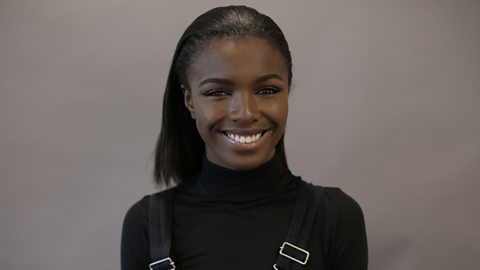
Leomie Anderson: 'Be unapologetically yourself'
The model on her advice to other young black women and her biggest inspiration, Rihanna.
After 10 years in the fashion industry, British model Leomie spoke out about its treatment of black models, from make-up to hair and under-representation.
“I feel like there's been a lot of situations where black models have been made to feel like second class citizens… because of our skin tone, because of our complexion, because our hair texture is different. We're not made to feel included, we're not treated the same,” she told Woman’s Hour in September.
“[At New York Fashion Week] I had to bring out my make-up bag, give it to the make-up artist and talk her though how to do make-up for my dark complexion. Yes, they have more natural hair on the runways, but hairdressers don't understand there are certain products that you can't use on black hair. If I voice my opinion, sometimes I'm made to feel like I'm being a diva, or that I'm being demanding, when I'm literally just saying, ‘if you put water in my hair it's not going to go flat and straight, it's going to go curly and frizzy - the complete opposite of what you want.
“At this point in my career, I feel like me being silent is me not standing up for the other young girls coming up in the industry. When I was younger I'd be going down the runway with my face looking grey, I'd be crying backstage because nobody wanted to do my hair or someone said a comment that was really offensive to me, and I didn't say anything. At 24 years old I'm at this point where I want to be able to do something so that younger girls don't come across the same problems.”
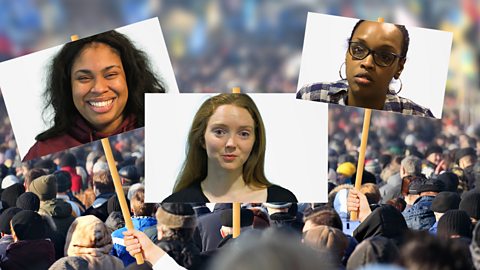
How to get your voice heard
Young female activists share their tips for taking a stand.
Amika George

Being just 18 hasn’t stopped Amika from leading the charge on period poverty, organising a #FreePeriods protest outside Downing Street this month, with the hope of persuading the government to give young girls entitled to free school meals access to free sanitary products.
“These are the girls from the lowest income families, who - if they're receiving free school lunches - are most likely to be suffering from period poverty. We know girls are missing school for up to a week every month and that’s a lot of time missing from their education in the long run,” said Amika, who calls sanitary protection “a fundamental human right.”
“The long term goal is that this will trigger some kind of response from the government. So far they've said that schools have discretion over their budgets… which we all know isn't feasible.
“Taking decisive and visible action was the only way to alert Teresa May and Justine Greening [Education Secretary] to the problem that's so endemic in the UK. The goal would be to sit down with them in the new year and try to come up with a solution.”
Reni Eddo-Lodge
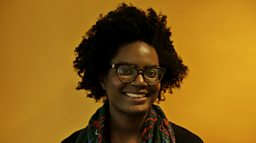
Earlier this year journalist Reni Eddo-Lodge published her book, Why I’m no longer talking to white people about Racism, which – despite its title – started a lot of conversations.
“When I was a child I was being told that I’d have to work twice as hard as my white counterparts to reap half of the rewards. But my white friends tell me that they were being told by their parents, ‘we’re all equal, don’t mention anybody’s race’ etc etc. Trying really hard to pretend that there isn’t a problem doesn’t actually solve anything. We have to recognise that there is clear racial bias in the institutions that we expect to treat us equally and that actually affects our life chances.
“A black boy is three times as likely as his white counterpart to be excluded from school, people with African and Asian sounding names are less likely to be called for interview, black people receive harsher criminal sentences for possession of drugs than their white counterparts, even though white people are more likely to use. [But] when attempting to try and address that I was told, ‘No. That’s all in your head, you’re making it up’. And I think that that was a kind of silencing.
“What’s really important is not to look to me as the oracle. What the book aims to do is provoke some self-examination more broadly from the white community. The burden of challenging racism in our institutions has fallen to the people affected by it, rather than the people benefitting from it… When you look at those racial disparities and see that people are less likely to succeed because they’re not white, the flip side of that is that some people are more likely to succeed because they are white.”

Munroe Bergdorf speaks out about speaking out
Trans model and activist Munroe Bergdorf discusses the consequences of speaking out.
The women using #MeToo
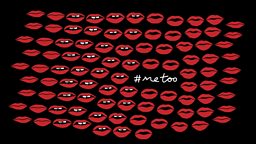
October allegations involving Hollywood movie producer Harvey Weinstein sparked a huge movement of women speaking out against sexual harassment, many of them sharing their experiences on social media using the hashtag #MeToo.
“I think this is a tipping point, because now it's all about the empowerment of women,” said women’s rights Lawyer Gloria Allred.
“The weapon of fear has been used very, very successfully in the past in order to silence [these women] and shame them. But now women who have kept this rage about the injustice that has been inflicted on them inside, sometimes for a decade, are turning that anger outwards into some constructive action and they're making their voices heard.
“What women are saying is this. ‘We want a better world for our daughters.’ We don't want them to have to suffer what we have had to suffer as women and by speaking out, by marching, by changing laws, by electing more women to positions of political power, by making sure that more women are in power in the workplace, those are the kind of changes that we need to ensure equal opportunities for our daughters.”
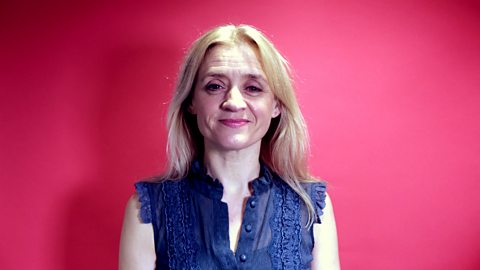
Anne-Marie Duff:'Shame is a very powerful thing'
Anne-Marie Duff on the sexual harassment she suffered as a young actor.
For more women speaking out in 2017, listen to a special edition of Woman’s Hour on Boxing Day, available here shortly after broadcast. Get this month’s Late Night Woman’s Hour podcast – 2017: WTF?!? - to hear Lauren Laverne and guests share their take on the year’s events from #MeToo to Munroe Bergdorf and Wonder Woman.




